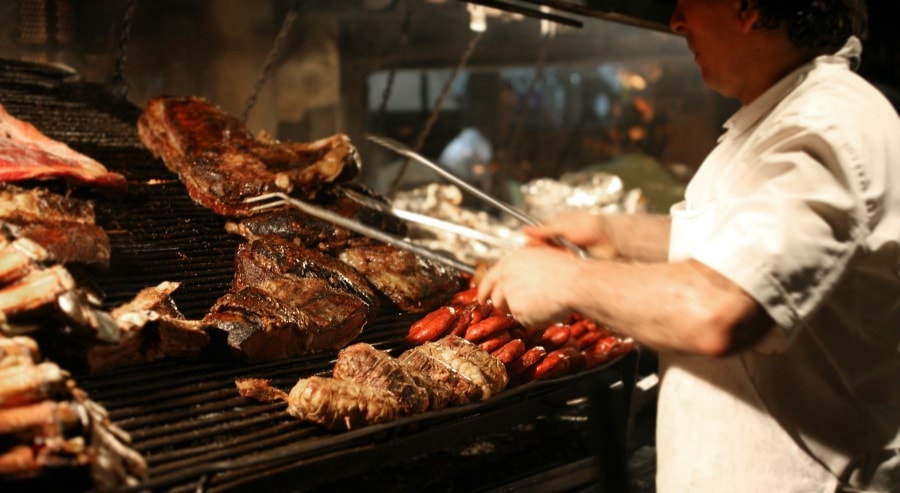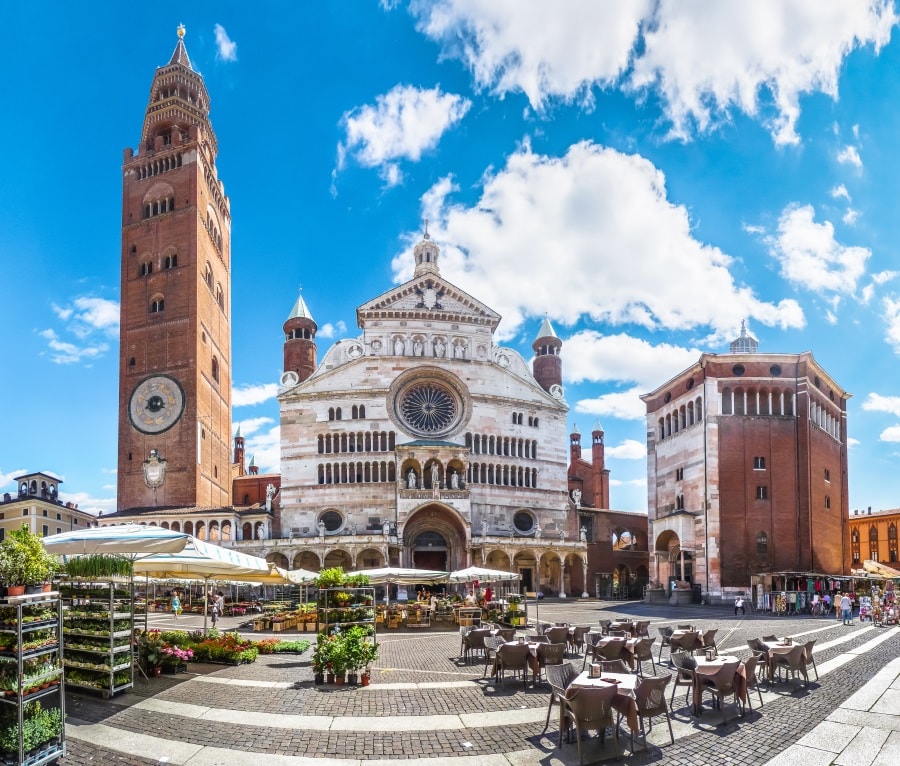
Where is the Rioplatense dialect used? You can hear “Rioplatense Spanish” in parts of Argentina and in Uruguay. The area where this dialect is spoken is known as the “Río de la Plata Basin”, hence the name, “Rioplatense”. Some people refer to this style of speaking as “Argentine Spanish” but this is a misnomer as it is not so common in the center and south of Argentina.
 The birth place of Rioplatense looks quite different today.
The birth place of Rioplatense looks quite different today.
The big difference: using “Vos” instead of “Tu”. The biggest difference from other Spanish dialects comes up when addressing someone informally. The usual pronoun “Tu” is replaced with “Vos”. This form is called “Voseo” and does not affect the formal address which still requires the pronoun “Usted”.
Other differences are:
-The use of the periphrastic future (voy a comer), over the imperfect future (comeré).
-The choice of the simple past (comí, comía) instead of the compound past (he comido)
-The ‘imperativos voseantes’ (comé instead of come, salí instead of sal)
 Our Spanish teacher has a rule: Posts about Argentina must contain an asado (grill)
Our Spanish teacher has a rule: Posts about Argentina must contain an asado (grill)
How did this distinct dialect develop: In the early days of Spanish colonization, the countries now known as Argentina and Uruguay had many immigrants from countries other than Spain (especially Italy). This mix of origin countries along with some influence by the indigenous population set the stage for the creation of this unique way of speaking. Beyond the differences in grammar and vocabulary, you also can’t miss the distinct cadence of this accent. Many describe this accent as having a “singsong pattern” which stems from mixture of indigenous and migrant (especially Italian) pronunciation.

Cathedral of Cremona in Lombardy Italy, Lombardy was a major source of immigrants to Argentina.
Slang unique to Argentina is called “Lunfardo”
Lunfardo is a slang which emerged in Buenos Aires and its surroundings in the second half of the 19th century. Its name comes from the Italian word Lumbardo which means an inhabitant of Lombardy, a northern Italian province. Lunfardo started out as prison slang used by the convicts so that guards wouldn't understand them before being adopted by the broader public.
Lunfardo is so widespread and popular, that if you travel in Argentina, you’ll hear it wherever you go.
Here are some of the common words you’ll hear:
- Bondi is a typical way to say ‘bus’. You can say “¡Estoy esperando al bondi” (I’m waiting for the ‘bus’!)
- Mina means ‘woman’. But be careful using it as it is very informal and can be considered impolite!
- Escabio, which comes from the Italian wine scabi, and means ‘drunk’.
- Piola is another way to say ‘smart’. As in “Jimena es muy piola” (Jimena is very smart)
- Birra is identical to the Italian word for ‘beer’.
- Laburar, which also originates from Italian, means ‘to work’ and often replaces the word trabajar. You may hear things like “Mañana tengo que laburar muchísimo”, (well, depending on how hard-working the people you meet are…)
After taking Language Zen's main Spanish course, picking up this dialect will be easy for you to do. If you want to see a special course focusing on the things mentioned in this article, let us know by leaving feedback by clicking the ‘feedback’ button on our main site.
